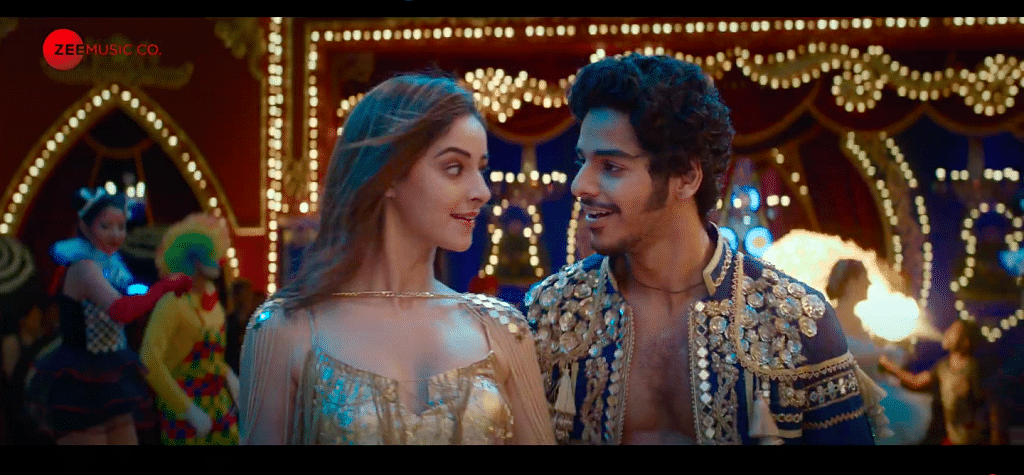Whether it’s Chitiyan Kalaiyan Ve or the latest Beyonce sharma jayegi, Bollywood has a skin colour problem. For decades, we have had songs about goriya and gora rang — white complexion — and it’s 2020 but Bollywood is still perpetuating the same thing. If it thinks a fair-skinned Ananya Panday can be called a goriya who can “put Beyonce to shame”, then Bollywood hasn’t really moved on from its ’60s-70s model and isn’t listening to Hindustan Unilever’s ‘Fair & Lovely’ campaign.
And no, Beyoncé Giselle Knowles-Carter, the American singer-songwriter has nothing to do with it. She is just a tool in Bollywood’s latest show of colourism. The first song from upcoming Hindi film Khaali Peeli, written by lyricist Kumaar and Raj Shekhar and composed by duo Vishal-Shekhar, released Monday to much criticism on social media, with people calling out the lyrics for using Beyoncé’s name in its skin colour comparison with the actor it’s picturised on — Ananya Panday. The other lead character, played by Ishaan Khatter, is seemingly mouthing praise for his co-star’s ‘beauty’.
Perhaps the only heartening thing to see is that unlike in the past, when Indians consumed such racist, tasteless songs without a hitch, a section of people today are calling out the song for what it is — Bollywood, and by extension most Indians’, continued love for fair skin tone.
Oh Dear! #BeyonceSharmaJayegi
Might be the worse thing I’ve seen ever! ?
I’d like to apologise to @Beyonce for this racist sexist hot mess. #BLM #mondaythoughts https://t.co/EXc1zmdHFe— Andy Kumar (@iAmVJAndy) September 7, 2020
This is just blatantly ignoring the fact how they're glorifying fair skin (yet again) and then comparing it to Beyoncé (a black woman). This is RACIST.
Y'all are embarrassing yourselves. TAKE ? THIS ? DOWN ? AND? APOLOGIZE ? #BeyonceSharmaJayegi https://t.co/eyVv6xsakP
— Rajvi Desai ? (@RajviDesai31) September 7, 2020
Dard E Disco and Ishq Wala Love (which I legit love) look like masterpieces in front of this #BeyonceSharmaJayegi . Those lyrics are ? And why does the hook tune sound like their Ra One theme? ??♂️
Disappointing by @VishalDadlani and @ShekharRavjiani
— S (@santgva9) September 7, 2020
The song, overall, is equally pathetic and can make your ears bleed.
Also read: Dropping ‘Fair’ from Fair & Lovely won’t erase Indian racism
India’s ‘goriya’ problem
Hindustan Unilever Limited announced on 25 June that it would remove the word ‘fair’ from their ‘Fair & Lovely’ product line.
HUL’s decision was not the only one. A few days before that, Johnson & Johnson had announced that it will stop sale of its Clean & Clear Fairness line sold in India and Neutrogena Fine Fairness line available in Asia and the Middle East.
While we might have imagined this as a step towards more inclusivity and reclaiming the natural skin tone of Indian women, Bollywood decided since Indians were still far away from getting over their love for a ‘goriya’ or a ‘fair-skinned woman’, Beyonce sharma jayegi was just the lyrics to go with the time.
Much like ‘chittiyan kalaiyan’ where the woman asks for various things based on her ‘white wrists’, this song too ends up walking many decades back to say it all over again — fair skin is the be all and end all of a woman’s personality, and worse, her negotiating power.
While Beyonce, if she ever learns about the song, will certainly not feel the shame, we are truly ashamed by this blatant show of racism, and colourism.
Also read: Afghan Snow, India’s first beauty cream, was christened by a king and endorsed by Gandhi
Brown-skinned girl
Most Indians must be aware of Honey Singh’s ‘Brown Rang’, but there exists Beyonce’s very own ‘Brown Skin Girl’. While ‘Kudiye ni tere, brown rang ne, Munde patt te ni saare mere town de’ might be how Honey Singh wanted to honour the natural skin tone of Indian women, Beyonce tells you how to do it minus men, or any validation from outside.
As opposed to the Kheeli Peeli’s lyrics of ‘Oh tujhe dekh ke goriya… Beyonce sharma jayegi’, Beyonce’s empowering lyrics go ‘Pigment like the earth, you be giving birth/ To everything alive, baby, know your worth.’
And I rest my case.
Also read: Daren Sammy shouldn’t wait for apology from IPL teammates. India is in denial about its racism
Exoticisation, but didn’t Beyonce do it first?
I know a lot of you believe it’s a ‘foot-tapping’ song, and so the blatant ‘overconfidence’ and racism don’t matter. You might also say that Beyonce pulled a ‘worse’ stunt by exoticising India in Coldplay’s ‘Hymn for the Weekend’.
Beyonce as ‘Bollywood queen’ among other snapshots of India and a fleeting glimpse of Sonam Kapoor are part of the video criticised for appropriation.
Fair enough.
But not that we have been any better at it, in fact worse. From Mr. India (1987) to Fashion (2008), our own tone-deaf attitude towards Blacks have been mortifying, to say the least.
And that is only the tip of the iceberg.
But after a movement like #BlackLivesMatter, and the surging critique on the ‘fair gets you anything’ logic, which even made Shaadi.com remove its ‘fair filter’ — if not change its mindset — Khaali Peeli song is a blatant show of ‘we do things the way we always have’ attitude.
Such trauma is handed out in a pandemic-hit year that has been too much already. Really, I don’t think we can take more of ‘khaali-peeli’ anything happening anymore.
Views are personal.
